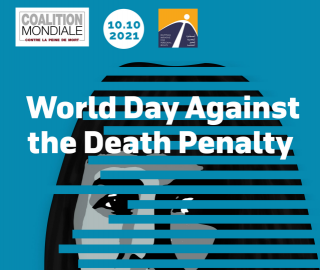During the month of June, Egyptian courts issued death sentences to 40 defendants in 24 cases. Among them, 1 was issued final verdicts that could not be appealed.
Tags: Death Penalty
During the month of May, Egyptian courts issued death sentences to 34 defendants in 25 cases. Among them, 5 were issued final verdicts that could not be appealed.
During the month of April, Egyptian courts issued death sentences to 39 defendants in 29 cases. Among them, 2 were issued final verdicts that could not be appealed.
The following infographics present the death penalty verdicts in Egypt in February 2024
The Egyptian Initiative for Personal Rights joins the World Day Against the Death Penalty, which aimed in the past year to focus on women who have been sentenced to death, those who have been executed and women at risk of being sentenced to death. EIPR’s position has been and remains to call for the suspension of the death penalty until a broad societal dialogue is opened about its deterrent effect.




